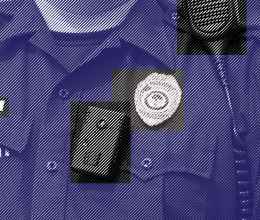In a trend I hope will last, the public is paying much more attention than it once did to how law enforcement operates. As a result, on any given day there are various community discussions, debates, and media analyses on topics, such as uses of force, racial profiling, targeting of communities of color, and police militarization.
One of the hottest issues in this policy area continues to be body worn cameras, a subject the ACLU opines on frequently. Here in Ohio, we don’t believe the ongoing expansion of police using body cameras will single handedly solve the numerous problems with law enforcement. However, having the right policies and laws in place will make a difference for the better.
Much of the current interest in body camera regulations revolves around fundamental issues, such as when cameras should be turned on and off, for example. Getting less attention is how public records laws fit into this discussion.
If body cameras for law enforcement are to result in a positive change in police-community relations, as everyone hopes, then accountability and transparency are key. Public records need as much discussion as the other issues.
Over the past several months, the ACLU of Ohio has been gathering and reviewing police department policies from around the state. Some are adequate in many respects, but still fall short. Others need vast improvement. The public records aspect is an afterthought in nearly all.
Unfortunately, even if each and every police department and sheriff’s office across the state with body cameras were to clearly state all recordings are subject to Ohio’s public records laws, this problem would not be solved. Ohio law permits law enforcement to keep information from the public when its work product is part of an investigation and when release of those records creates a “high probability of disclosure” of specific confidential investigatory techniques or procedures. Typically these records are then available for release at the conclusion of a criminal case.
“If body cameras for law enforcement are to result in a positive change in police-community relations, as everyone hopes, then accountability and transparency are key.”
As a result, police incident reports are public records because they initiate, but are not part of, criminal investigations. You are forgiven if you think the same logic should apply to body cameras for police. Regrettably, at least one appeals court in Ohio rejected this approach by ruling police dash-camera videos can be treated like investigatory records rather than incident reports.
That case involved a DUI stop and arrest conducted by an Ohio State Highway Patrol trooper. The Ohio Court of Appeals for the Twelfth Appellate District ruled the dash cam footage revealed particular investigatory techniques and was exempt from disclosure. The court also found the footage was exempt because of its relevance to an investigation of a particular person committing a particular violation “rather than a routine monitoring investigation of all motorists on the road” that night.
Although the footage was released after that person’s case concluded, such a ruling does not bode well for how courts may treat the intersection of body cameras and Ohio’s public records laws. No doubt the matter will reach them soon.
We favor statewide laws that adopt various best practices. Indeed, we are currently working with lawmakers to make this reality. But, just like local policies that largely ignore this issue, any legislation that does not value transparency will create suspicion and be counterproductive to the ultimate goal of needed reform.








